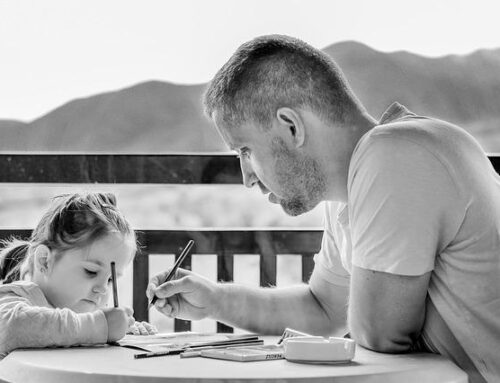Just to do a quick recap,
We’ve discussed this DBT concept of the Wise Mind as a decision-making process that helps you to make a decision that best aligns with your values. We briefly went over the necessity of having balance between emotion and reason and we also delved deeper into the strengths and challenges of Ration Mind decision making.
Moving forward, I’d like to discuss the importance of the Emotional Mind. To do this, I think it’s important to start with why we even have emotions in the first place. I mean, they just get in the way, right? Well, I believe that each emotion serves an individualized purpose – even those emotions we tend to think of as “negative.” As I say that, you probably can call to mind which emotions you consider to be “negative” ones and which ones you deem “positive.” For our purposes here, I ask that you let go of the preconceived notion of positive and negative emotions. For right now, let’s get in the habit of viewing emotions as “comfortable” and “uncomfortable.” (Those terms just keep coming up for us).
I know what you’re probably thinking
How can something so uncomfortable serve a purpose? Let’s start with an example about a crowd favorite: anxiety. Let’s say you decide you’re going on a two-week vacation to the beach. On your first day, it’s perfect sunny weather, and you’re living the dream. Eventually, you get too hot on the sand, so you decide to wade out into the water, just for a bit. When you do, you notice this grey triangle, that at first glance, looks a lot like a dorsal fin.
Forget about what you’re thinking because you probably won’t give yourself time to think anything. What is it that you’ll likely be feeling? For the vast majority of people, that emotion will be fear. Is that comfortable? Absolutely not. But is it helpful? I’d argue that it is. Because of that fear, you’re likely going to go into “fight or flight” and get out of the water as fast as you possibly can. This is an Emotional Mind reaction that, in that situation, keeps you alive.
Now let’s say the next day,
You come back to that same beach, and sit on the sand and look out at the ocean. Before you even dip your toe in the water, you’re likely going to feel an emotion similar to that fear bubbling up inside of you. But this time, there’s no shark to be seen. The emotion you’re experiencing now is what we call anxiety, that step below fear when you feel like there’s a potential threat or that nagging feeling that “something bad” will happen. The difference is, when you stop and look, the threat is nowhere to be seen.
Anxiety, in a way, is fear of fear itself. It turns out, FDR might have been onto something there. Think about this situation on the beach after your close call the previous day. Think about the anxiety you would feel in this situation. Is that comfortable? Definitely not. Is it helpful? I’d say so. You know that your life was in danger in a similar situation the day before. That anxiety is serving a purpose. It’s trying to prevent you from being in that situation again.
Here is where the situation tends to devolve.
Imagine your two-week beach trip is over, and you are home, getting ready to shower for work the next day. You turn on the water but hesitate to get in. Your mind is bombarded with images of that dorsal fin. You go to sleep and dream about it. And trying to watch the Discovery Channel during Shark Week? You can forget about that. What’s the emotion now? Unfortunately, it’s still anxiety. It’s still uncomfortable. And now, it’s stopped being helpful.
This is a bit of an extreme example, and I like it because most people can’t relate to it exactly, but can imagine what it might be like for them to experience it. The point is that most of us have a “shark” that intrusively swims around in our mind. Whether that’s anxiety about paying bills on time, or feeling like you aren’t competent at work, or even just that thought of “I have so much to do next week, I can’t possibly get through it all.”
Before you condemn Jaws as a monster,
I ask that first, you listen to what your finned friend is trying to tell you. Our emotions, though they can be uncomfortable at times, really serve as an early warning system for our perception of the world around us. Anxiety typically warns us of danger. Frustration tells us that our goals are being blocked. Grief tells us we lost something or someone important to us. Shame lets us know that we’ve acted in a way that is against our values. Guilt communicates that we have hurt someone close to us. And happiness shows us that we are comfortable in the situation that we are in. The list goes on and on. To say that some emotions are negative is, from my perspective, equivalent to reading every other word in a book. You get the gist but miss the nuances and details.





Leave A Comment